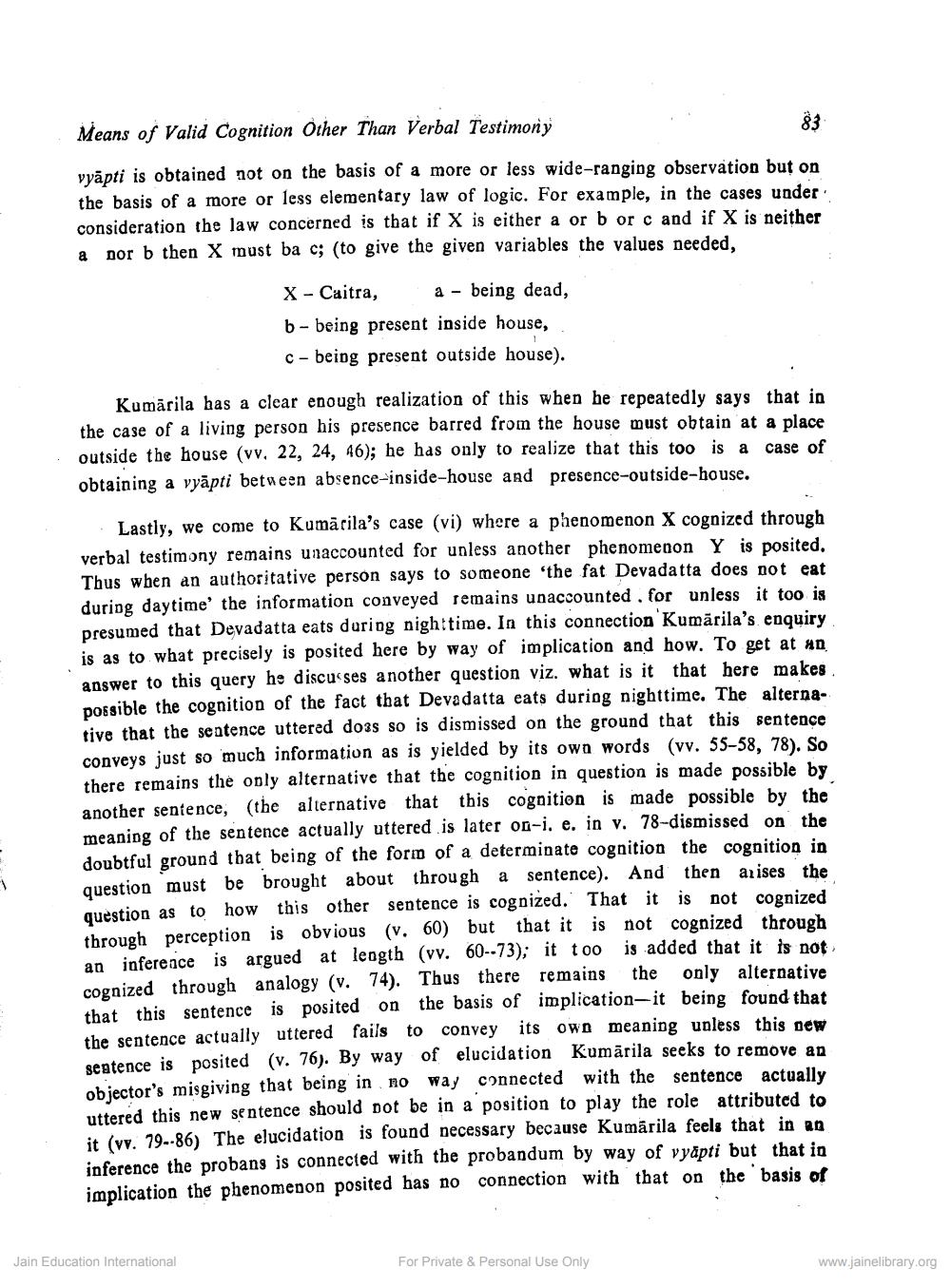________________
83
Means of Valid Cognition Other Than Verbal Testimony
vyāpti is obtained not on the basis of a more or less wide-ranging observation but on the basis of a more or less elementary law of logic. For example, in the cases under consideration the law concerned is that if X is either a or b or c and if X is neither nor b then X must ba c; (to give the given variables the values needed,
X- Caitra,
a being dead,
b- being present inside house, c-being present outside house).
Kumarila has a clear enough realization of this when he repeatedly says that in the case of a living person his presence barred from the house must obtain at a place outside the house (vv. 22, 24, 46); he has only to realize that this too is a obtaining a vyapti between absence-inside-house and presence-outside-house.
Lastly, we come to Kumärila's case (vi) where a phenomenon X cognized through verbal testimony remains unaccounted for unless another phenomenon Y is posited. Thus when an authoritative person says to someone the fat Devadatta does not eat during daytime' the information conveyed remains unaccounted. for unless it too is presumed that Devadatta eats during nigh:time. In this connection Kumarila's enquiry is as to what precisely is posited here by way of implication and how. To get at an answer to this query he discusses another question viz. what is it that here makes possible the cognition of the fact that Devadatta eats during nighttime. The alternative that the sentence uttered doзs so is dismissed on the ground that this sentence conveys just so much information as is yielded by its own words (vv. 55-58, 78). So there remains the only alternative that the cognition in question is made possible by another sentence, (the alternative that this cognition is made possible by the meaning of the sentence actually uttered is later on-i. e. in v. 78-dismissed on the doubtful ground that being of the form of a determinate cognition the cognition in question must be brought about through a sentence). And then arises the question as to how this other sentence is cognized. That it is not cognized through perception is obvious (v. 60) but that it is not cognized through an inference is argued at length (vv. 60--73); it too is added that it is not the only alternative cognized through analogy (v. 74). Thus there remains. that this sentence is posited on the basis of implication-it being found that to convey its own meaning unless this new the sentence actually uttered fails sentence is posited (v. 76). By way of elucidation Kumārila seeks to remove an way connected with the sentence actually objector's misgiving that being in no way connected uttered this new sentence should not be in a position to play the role attributed to it (vv. 79--86) The elucidation is found necessary because Kumärila feels that in an inference the probans is connected with the probandum by way of vyapti but that in implication the phenomenon posited has no connection with that on the basis of
Jain Education International
For Private & Personal Use Only
www.jainelibrary.org




